【TNF Journal】Business’s New Relationship with Disabilities(Part 14)Bonding Through “Blindness”
Santen’s Efforts to Build Bridges to an Inclusive Society
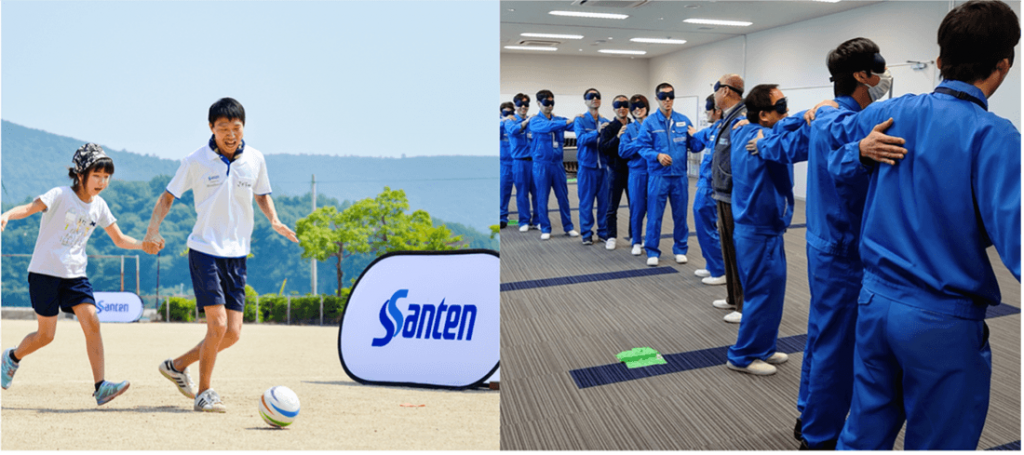
Key Points in this Article
- Santen conducts a “Blind Experience” program within and outside the company to promote understanding of visual disabilities.
- By resorting to their own ingenuity through their experience of being “unable to see,” participants deepen their awareness of visual disabilities.
- By bringing down the walls between those who can see and those who cannot, Santen aims to create a society where everyone can fully participate.
Reporting: The Nippon Foundation Journal Editing Department
Taking a close look at the employment of people with disabilities at companies and the development of products and services for people with disabilities, we introduce some outstanding initiatives in this series. We would like our readers to join us in considering what kind of viewpoints and ideas are necessary for creating an inclusive society* where everyone can participate whether or not they have disabilities.
- * A society in which the existence of each and every individual is valued, regardless of race, gender, nationality, social status or disability.
In charge of reporting are members of the Working Group* formed by the Nippon Foundation to accelerate the social participation of persons with disabilities.
- * A group formed to research and promote plans for specific issues
Following on from the previous issue, this time we introduce initiatives of Santen Pharmaceutical Co., Ltd. (“Santen”)(a new window opens), a company that goes beyond the conventional framework of providing pharmaceuticals as an ophthalmic specialty company to create connections between people with and without visual impairments.
For this issue, we spoke to Mr. Takahiro Morita (Executive Officer), Mr. Masato Nakano (General Manager, CSR Group, Corporate Development Division), and Mr. Mohamed Omer Abdin (CSR Group, Corporate Development Division), who is also Representative Director of the NPO Committee for Assisting and Promoting Education for Disabled in Sudan (CAPEDS) about the Blind Experience (a new window opens), a program conducted within and outside the company for promoting understanding of visual disabilities.
Deepening understanding of visual disabilities by experiencing “blindness”
Okuhira: I am Masako Okuhira from the Nippon Foundation Working Group. Please tell us details of the Blind Experience program Santen is conducting to realize an inclusive society where all people with and without disabilities live full, active lives together, which is part of Santen’s vision.
Mr. Nakano: The Blind Experience is a program where people who have full vision develop an understanding of people with visual disabilities, and the hardships and challenges they face. At the same time, it is a program for creating time for people to think about what they as individuals can do. We originally started the program for employees, to deepen our own understanding of visual disabilities.
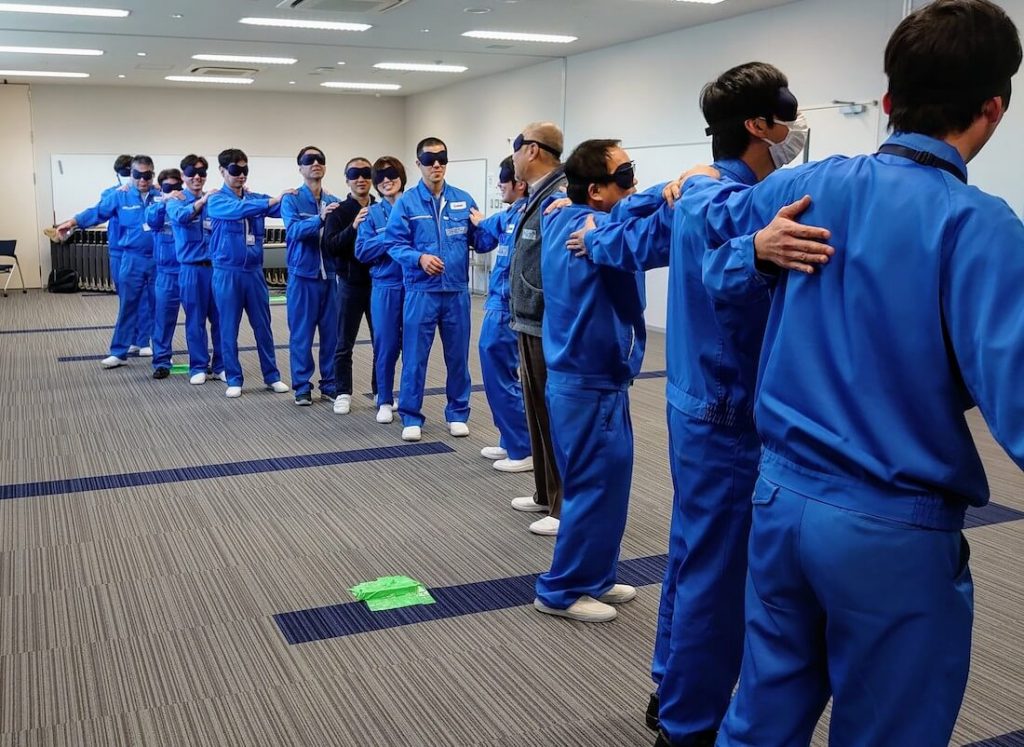
Okuhira: What kind of changes occurred as a result of adopting this program in the company?
Mr. Nakano: Even our employees involved in business related to vision unknowingly had biased views toward people with visual impairments, either feeling pity for them or the need to do something for them. In fact, by working with persons with visual impairments like Mr. Abdin, they were able to truly understand at a personal level that such people were in no way to be pitied but were capable of doing many things in the same ways as people with ordinary vision do. Therefore, based on this example, we expanded our target to include society at large.
Learning communication through blind football
Okuhira: What specific activities is Santen doing for society?
Mr. Nakano: We have signed a long-term partnership agreement with the Japan Blind Football Association (JBFA) (a new window opens) and the International Blind Football Foundation (IBF Foundation) (a new window opens), and in addition to supporting blind football, we provide people with opportunities to experience what it’s like to have a visual impairment while having fun. While our program is mainly for the classroom such as elementary schools, we also hold programs for adults and companies upon request. Through blind football, we also sponsor activities to support children with visual impairments, and we devote efforts to forming networks for children as well as their parents.
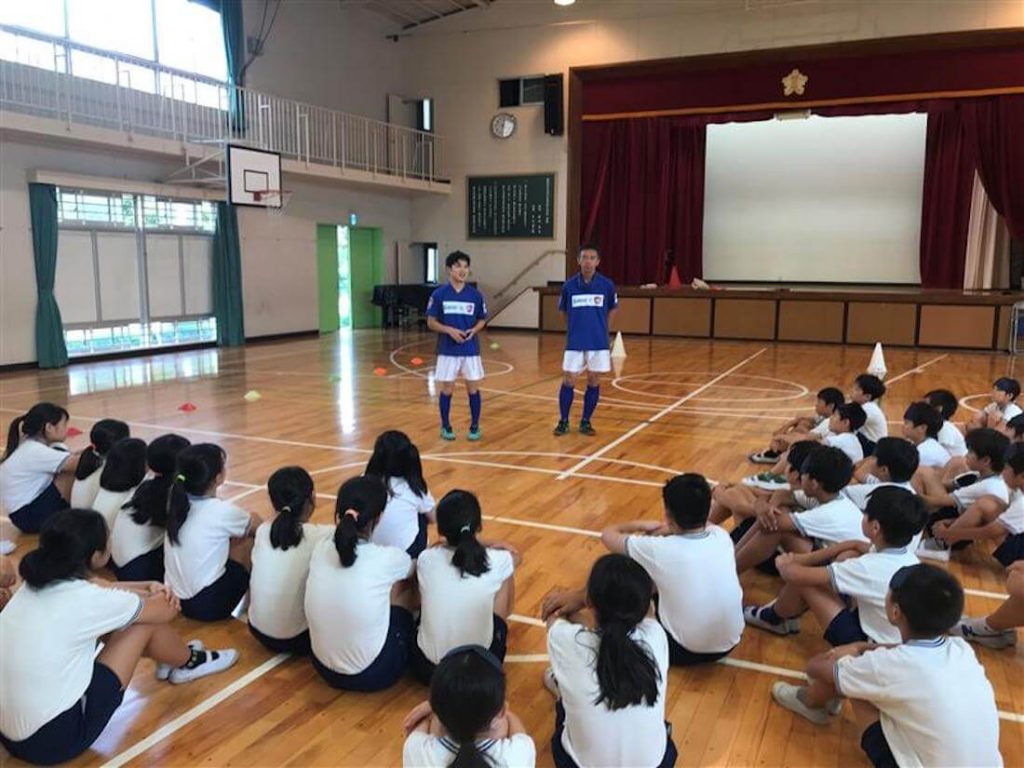
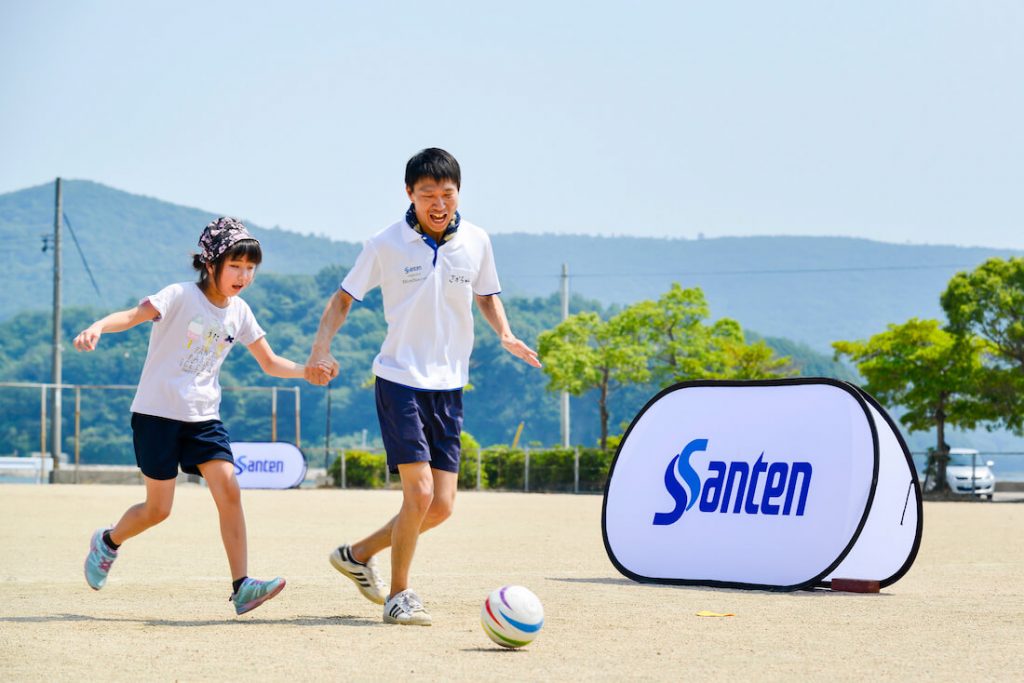
Okuhira: I think there are various sports that visually impaired people can participate in, but why has Santen chosen blind football?
Mr. Nakano: First of all, football is a sport that is loved all around the world, and blind football is a sport that is currently popular in around 60 countries worldwide. Blind football is also game that must be played by both people with and without visual impairments. In addition to four players with visual impairments, it requires visually able persons to play on the same field as guides (callers), who give instructions such as when to make a pass, and goalkeepers. In Santen’s Blind Experience, persons with vision wear masks and experience what it’s like to be without vision as they engage in sports with people with visual impairments.
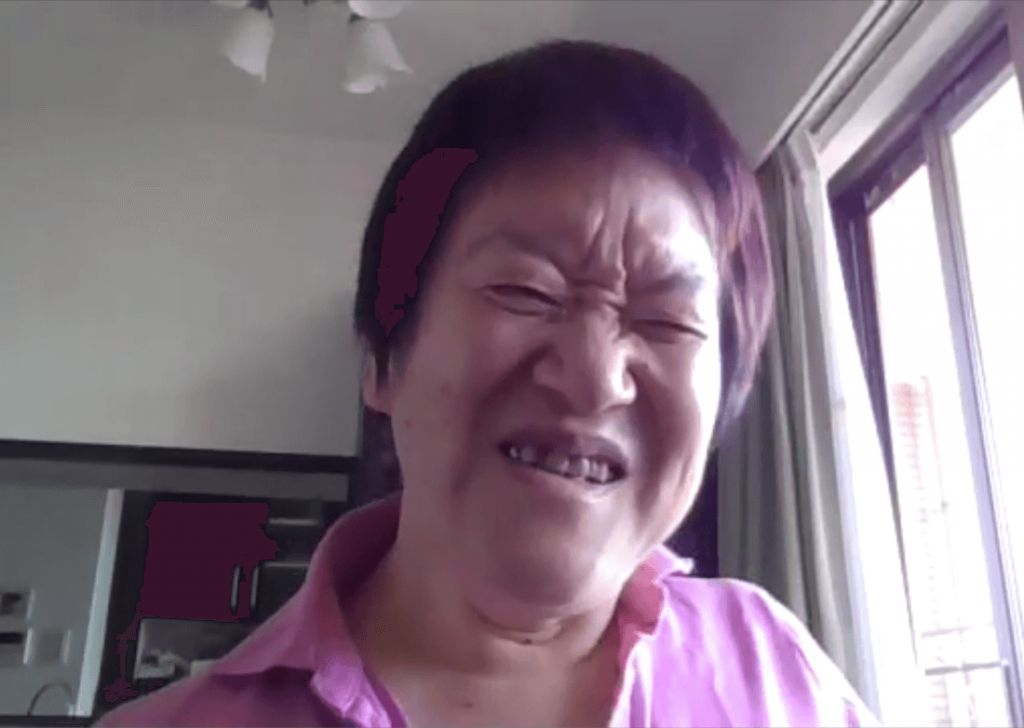
Okuhira: Now I understand! This is my first time to learn that a player with vision serves as the goalkeeper in blind football.
Horiuchi: I’m Yoshimi Horiuchi of the Nippon Foundation Working Group. That is a wonderful initiative! However, what worries me a little is whether any of the children disliked or were afraid of suddenly experiencing becoming sightless.
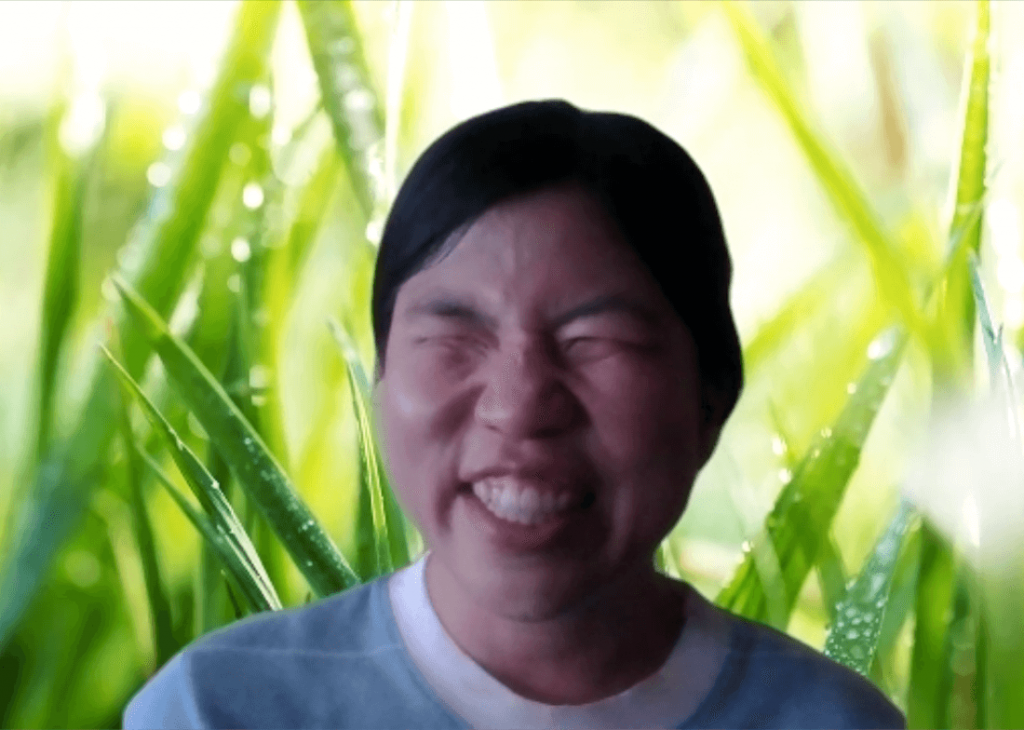
Mr. Abdin: Santen, as a partner, supports the “Supo Iku (Sports Education)” (a new window opens), a diversity education program designed for elementary and middle school students sponsored by the JBFA. This is an experience-based program where participants block their eyesight, and they gradually get used to being sightless through various exercises, such as initially taking only five steps at a time wearing a mask over their eyes. At that time, leaders remind participating students to remove their masks right away if they feel scared. Students who really get too anxious are asked to play the role of giving instructions to friends who are wearing masks. Since this is an activity conducted in the course of communication with other team members, we believe students playing either role learn about communication from the perspective of persons with disabilities.
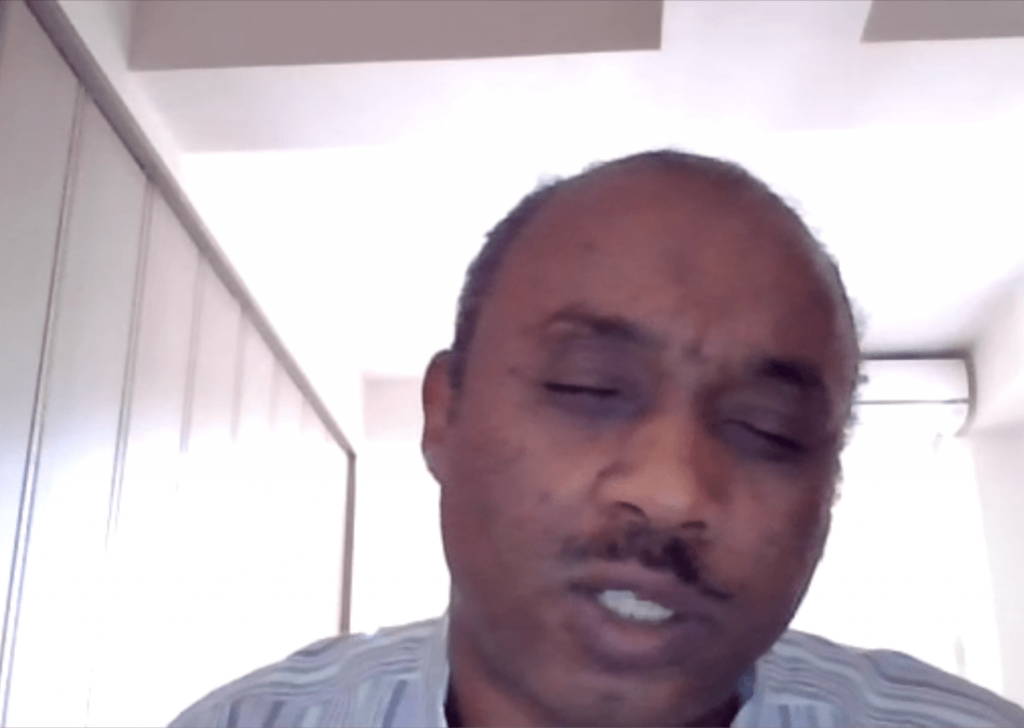
Mr. Nakano: We have had many children go through the experience of not being able to see but hardly any of them ever said they were scared. When asked about their impressions of the experience, some children expressed the view that it deepened their understanding of visual impairments and changed their awareness. Some children also made comments such as, “I decided to take better care of my eyes.” So another outcome of this experience was that it also made the children aware of eye health in a natural way.
Mr. Morita: By the way, ophthalmologists have also participated in the “Blind Experience” at academic conference events. In giving their impressions of the experience, some doctors said that it took them back to the very reason why they wanted to help people suffering from visual impairments. In this way, I believe that having various people experience the state of being sightless will lead to them as individuals understanding, thinking about, and taking action from their own standpoint.
Horiuchi: It is very meaningful for ophthalmologists as well as children to have this understanding.
Bringing down the walls between people with and without disabilities and creating a society where everyone can live fulfilling lives
Okuhira: Do you foresee further development of Santen’s Blind Experience and promotion of inclusion in the future?
Mr. Nakano: Certainly. The program until now has been mainly for people to come into direct contact with each other and to have this experience in the workplace, but due to the ongoing impact of COVID-19, it is still difficult to bring together a large number of people. In the future, in addition to blind football, we would like to work on a new form of the Blind Experience that would include the presentation of online lectures by Mr. Abdin and others with visual impairments, and workshops that incorporate various contents.
Mr. Abdin: Of course, we want to continue to value the importance of getting together and having direct contact and communication. There is a limit as to how much we can convey the concept of “not being able to see” through words alone. Through blind football, we can provide successful experiences to children. As we give them some pointers and tips, they begin to realize, “I can now do it better than before!” Through these experiences, children naturally and accurately understand that it is possible to get along in life using their ingenuity even if they are unable to see. I think that learning as a child changes a person’s behavior as an adult.
Okumura: I think that people who associate with various people from childhood naturally begin to embrace diversity.
Mr. Morita: In this partnership, we have the common vision of “bringing down the walls between those who can see and those who cannot, turning our society into a stage on which anyone can shine.” Starting with blind football, we would like to create a society where everyone can play an active role on a level playing field while expanding our partnerships.
![Illustration:A vision of the future through the partnership between Santen, the Japan Blind Football Association and International Blind Football Foundation Bringing down the walls between those who can see and those who can't Turing our society into stage on which anyone can shine [Sharing experiences to understand each other's differences and strengths] Blind football youth leadership camp, Introducing blind football into school education, New blind football experience, International blind football friendlies, Events for the visually impaired and sighted to exchange, Eye care medical professionals in collaboration with blind football [Create innovation to "seeing"] Innovation hub (product and service development), Eye care salon, Sports caravan hospital [Improve the quality of life of the visually impaired] Creating new employment for the visually impaired, Promoting artistic activities for the visually impaired](/app/uploads/2021/08/en_new_art_20210830_15-1024x704.png)



